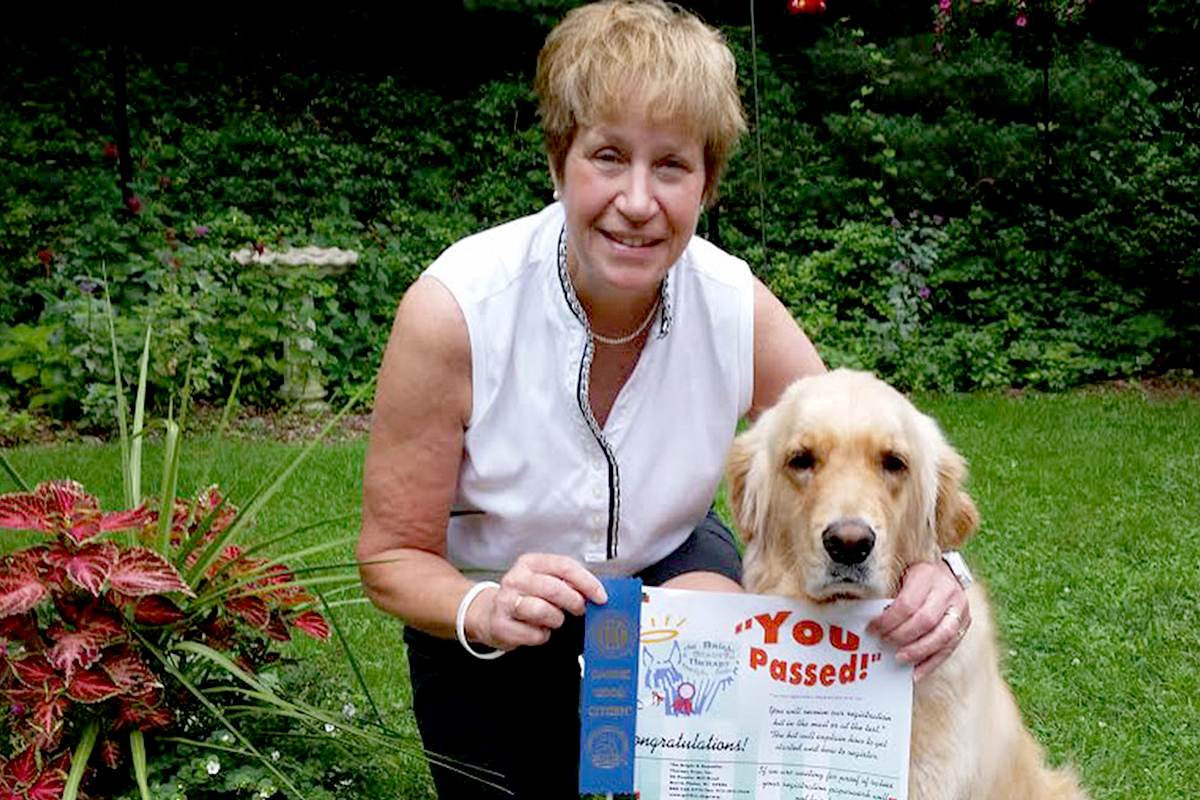
When avid golfer Karen was sidelined by cancer, immunotherapy got her back in full swing.
Karen’s Story
Karen Koehler’s cancer journey has been anything but par for the course.
The 59-year-old retired teacher from Park Ridge, New Jersey, had been living with chronic lymphocytic leukemia (CLL), a blood cancer that spurs white blood cell growth, for three years. She felt fine and had even played 18 holes the day before seeing her doctor in June 2014. But during that fateful summer visit, she and her husband, Dave, learned that her cancer had kicked into high gear, and that she had at most two years to live.
“We were completely blown out of the water,” Karen says.
Faced with the prospect of starting on an intense chemotherapy regimen, Karen decided not to play it as it lay. Her doctor had told her about a promising new treatment called CAR T cell therapy. The process involves removing immune cells from the body, beefing them up with cancer-fighting proteins, and then putting them back in. He also told Karen about innovative research led by Memorial Sloan Kettering hematologic oncologist Jae Park on this form of immunotherapy. Immunotherapies use patients’ own immune system to fight their cancer.
Dr. Park was eager to get Karen on a clinical trial he was leading. “We knew she had kind of hit a wall,” he says. “She needed something to get rid of her cancer completely so that it may not relapse in the future.”
- Karen had been living with chronic lymphocytic leukemia since 2011.
- In 2014, her condition took a turn for the worse.
- Her MSK doctor, Jae Park, advised a CAR T cell therapy clinical trial.
- CAR T cell therapy is a form of immunotherapy that boosts cancer-fighting T cells.
- Clinical trials give patients access to treatments before they’re widely available.
- A month after treatment, she showed no signs of cancer.
Karen says she was “absolutely thrilled” when she learned she was accepted into Dr. Park’s trial. “We were so relieved.”
In October 2014, Karen underwent leukapheresis. In this procedure, her white blood cells were harvested and T cells were pulled out. In February 2015, she underwent infusion of her new, stronger T cells.
The infusion itself was easy for Karen — she was even awake for the procedure — but the aftermath proved challenging. The new T cells were working to kill the cancer, but they also set off an immune reaction that made her feel ill. Karen says she became physically weak and mentally fuzzy, and she spent a month recuperating at MSK. But it was all worth it, she says: The results from the bone marrow biopsy she had a month after the infusion showed no signs of cancer.
Dr. Park was astonished. “She had persistent disease despite several months of previous therapy, but within four weeks, her leukemia was gone completely,” he says.
Back to Normal

A month after she left the hospital, Karen packed up for Florida and got back to golfing. The icing on the cake came in August, when she hit her first-ever hole in one.
“It was a long hole — 133 yards — and uphill, with lots of sand,” she recalls. “I took my driver and just took an easy swing. The ball hit right before green and started rolling up. We said, ‘Hey, I may actually get on the green!’ Then we all watched it roll into the hole! I think they heard me screaming back at the clubhouse and in the next town. It was so exciting.”
Now a year post-treatment, Karen is feeling great and regularly hitting the links. She also certified her golden retriever, C.J., as a therapy dog, inspired by a playful pup that came to visit her at MSK. She’s looking forward to more “golf, walking, and doing things with C.J.,” she says.
While CAR T cell therapy is not yet available for all patients, Dr. Park believes it is one of the most exciting developments in cancer treatment.
“We hope that one day CAR T cell therapy can replace bone marrow transplants and lead to a cure,” he said.



